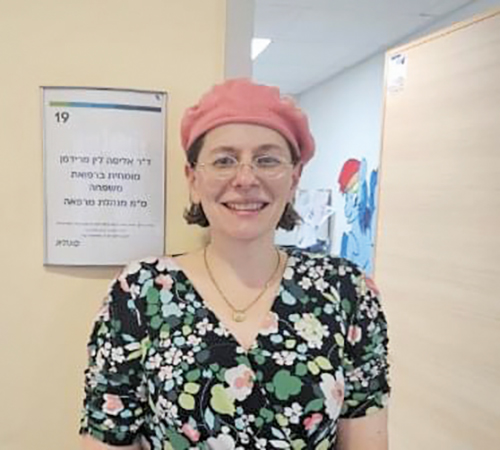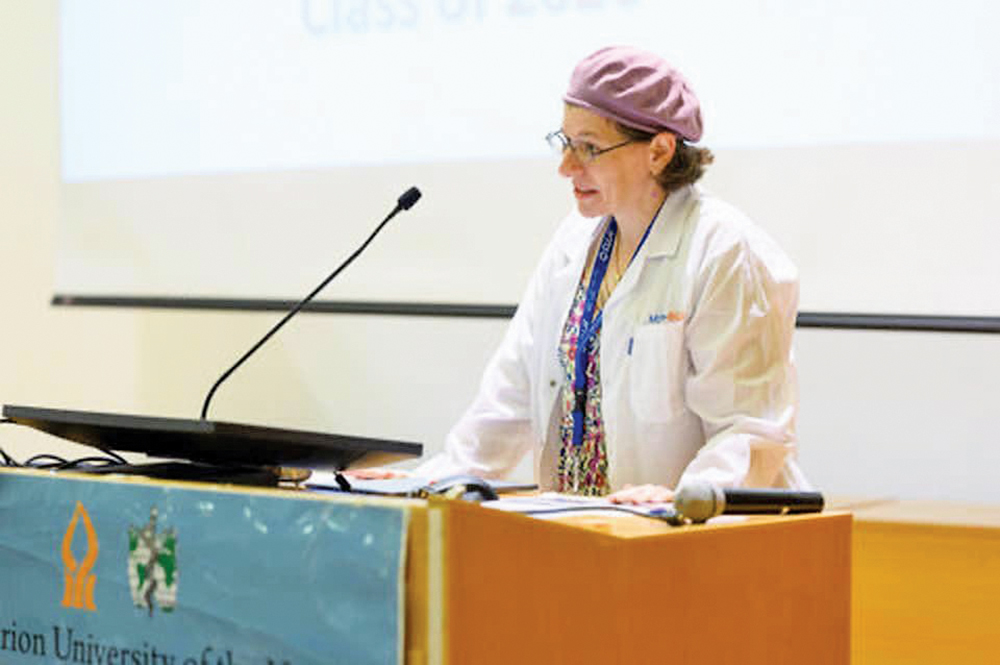
When Dr. Elissa Freedman made aliyah in 2016 from Hartford with her husband and three sons, she wanted to practice medicine in a part of the country where her services would be especially needed. She had studied medicine at Ben Gurion University in Be’er Sheba when she met her husband and grew a fond connection to the Negev. Dr. Freedman returned to the United States to complete her residency, but she and her husband always had their eyes set on returning to Israel. Nine years later, the desert air was calling Freedman, and she and her family boarded a plane to Israel, but this time with the intention to stay for good.
The Medical School for International Health at Ben-Gurion University is unique in that it incorporates into its curriculum global health, which focuses on health equity for all populations. As a student at the university, Freedman was drawn to this patient-centered approach to medicine, which she described as, “helping people who are otherwise less visible.” When she returned to Israel as a family doctor, she wanted to practice medicine in the periphery so that she could serve underprivileged populations.
Today, Freedman serves as the medical director of the Clalit clinic in the “yud-alef” neighborhood of Be’er Sheba, where she oversees 9,450 patients, seven family doctors and three residents. She is also the associate director for Student Affairs at the Ben-Gurion medical school, where she mentors and teaches medical students. Until recently, she also worked one day a week in child development with children on the autism spectrum, taking much inspiration from her oldest son who was diagnosed with autism at the age of 2.

About 30 % of the patients Freedman sees in her clinic are Ethiopian-Israelis, including recent immigrants who are learning Hebrew and are acclimating to life in a new country. Some of her patients are illiterate and have limited understanding of modern technology, and as a result face health inequities. Much of her time is spent helping them understand the medical system and how to access it.
“I really believe that working in the clinic that I am in now is for me a shlichut because the program I trained in really trained me to serve underserved populations,” Freedman explained.
Freedman is also proud to help new immigrants who are navigating their careers in the medical field in Israel. Her biggest challenge is the language barrier, and she feels that as good as her Hebrew is, she will never be on the same level as a native speaker. “There are so many stumbling blocks that people face and think about when they’re making aliyah, and so, you know, [I can] just be a friendly face who can say, ‘I did it; it worked out okay for me,’” she said.
Since October 7, her clinic has treated a number of evacuees from the kibbutzim in the Western Negev that have temporarily relocated to Be’er Sheba. She looks at Be’er Sheba and her own medical clinic as a bastion of hope. Many of her staff are Arab-Israelis and at the clinic, people of all backgrounds work together in coexistence for the purpose of healing and bringing relief to the sick.
One of the moments Freedman is most proud of took place a few years ago when she was selected to participate in the white coat ceremony at Ben-Gurion University as part of the faculty delegation. Freedman introduced the guest speaker from the podium. She keeps a framed photo of the event in her office. “I think [about] where I was 20 years ago as a student, and I remember the feelings of being a student in the medical school and singing Hatikvah while thinking, ‘I’m not a citizen,”’ she reflected. “But I’m here and I’m a Jew and I’m part of this, and now when I get to sing Hatikvah as part of the faculty delegation, it’s incredible.”
Freedman is able to point her finger on the moment when she first decided that she was going to be a doctor. She was a 12-year-old living in Beacon, New York, when she had a cooking accident that left her in the hospital over Pesach. She was treated by an “amazing plastic surgeon” with a baby at her side. “I just saw this model that I could be a doctor and … a mom, and I could take care of people,” Freedman explained.
Freedman fulfilled her dreams to become a doctor. But when she was dreaming of her future at the age of 12, she did not imagine that she would be taking care of people of all backgrounds and nationalities in the desert. Freedman hopes to see her clinic continue to succeed, and to see more doctors, social workers and psychologists—and especially immigrants—move to the south. “Ben Gurion said in order for the country to exist, we must go south. We need people to come to the south because we need to build the south, even more so after the 7th of October.”
Alisa Bodner is a Fair Lawn native who immigrated to Israel over a decade ago. She is a nonprofit management professional who enjoys writing in her free time.












